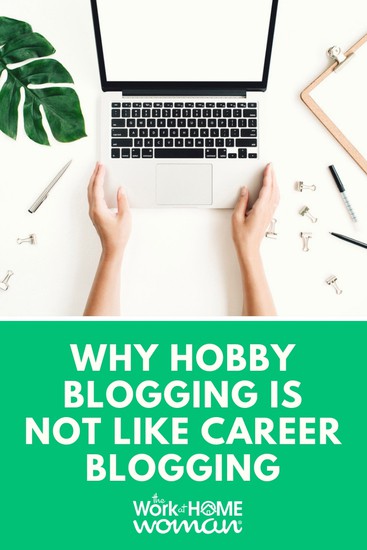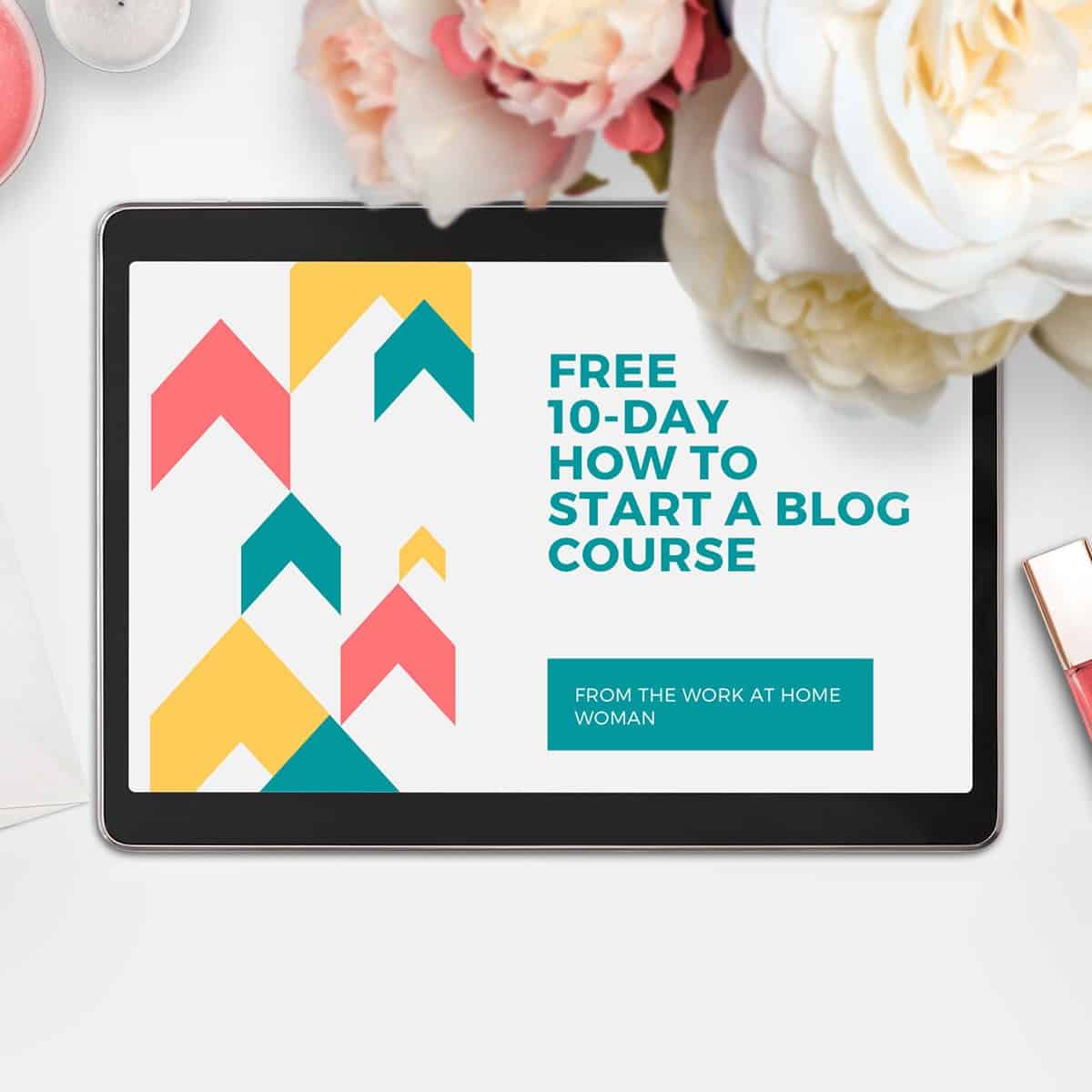 I know I’m not the only one guilty of being a serial-blog abandoner. I’d ask for a show of hands, but I wouldn’t want to embarrass anyone who is currently reading.
I know I’m not the only one guilty of being a serial-blog abandoner. I’d ask for a show of hands, but I wouldn’t want to embarrass anyone who is currently reading.
I can’t even begin to count the number of times I’ve had a great idea for a blog, got it started, written some content, and then. And then my attention has been pulled in a different direction and I’ve deserted the poor bare-bones blog. I think it’s a pretty common phenomenon for those of us finding our place in this online world.
It takes time to find our voices and to figure out how we want to communicate with others. That’s okay.
The thing is, though hobby blogging and career blogging share the term “blogging,” there’s not a whole lot of similarity between the two. Hobby blogging is predicated on finding your personality and figuring out how to package it. Career blogging, on the other hand, isn’t about personality; it’s about brand strategy. At its heart, career or business blogging is about growing your brand so that you become more profitable.
Let’s take a closer look at how hobby blogging differs from career blogging and what you need to do to be successful as a monetized career blogger.
It’s Imperative to Be Online:
This is perhaps the only area in which hobby and career blogging share a commonality. That is, in our personal lives, it’s become increasingly impossible to engage with our friends and family if we’re not online. Social media and email have eclipsed our traditional means of communication—letter writing and phone calls—as our methods for staying in contact with the people we interact with on a daily basis.
If you’re not active online, it’s likely that you’re missing out on a plethora of social interactions. This idea is also at the root of why career blogging. Your customers, your clients, and your potential contacts are all online. It’s imperative that you bring your business to them.
Having a strong online presence is about being visible. It’s your opportunity to establish yourself as an expert in your field. Furthermore, it will allow you to be part of a community, which can be invaluable if you’re working from home. The larger you can grow your network, the more likely you are to connect with your clients and customers. If you haven’t already established a strong online presence, start now.
Here’s a guide to career blogging that can help you get started.
Understand Your Market Niche:
This is where the worlds of hobby blogging and career blogging begin to diverge. While in personal or hobby blogging, you are free to write about things that capture your attention—one day that could be a DIY project while the next it could be a political debate or a restaurant review—in career blogging, it’s vitally important that you concentrate on producing content that fits into your market niche, since your goal is to position yourself as an authority in your field.
How do you determine your niche?
- Research: Spend time researching specifically what it is that others in your market are writing about. What are other blogs in your market doing? Are they doing it successfully? Are they leaving important areas unaddressed? What has been covered fully, and, more importantly, what is being overlooked? Find the holes in content and develop strategies to fill them in.
- Establish Your Blog’s Goals: Next, you’ll need to spend time developing what the goals are for your blog. Think about your brand strategy and determine how your blog can help convey those strategies to your readers. When you understand what these goals are, you’ll be able to begin building your blog’s platform in order to meet them.
Related Content: Blogging Goals to Set This Year
You Need to Determine Your Audience:
Next, you’ll need to determine who the audience for your blog will be. This is important because until you know who your audience is, it will be difficult to determine what kind of content will be relevant to their needs. In the world of career blogging, you can’t afford to just sit back and wait for readers to come to you, nor just take any old reader that happens along, as you can in a hobby or personal blog.
You need to target a specific audience that will ultimately help to grow your bottom-line. The good news is that this is probably a bit simpler than it seems.
Why?
Because determining your audience is as simple as researching your existing customer base.
- Poll a sample of your customers. What are their demographics (education, age, employment, gender, etc.)? What are they influenced by (television, friends, family, the internet, etc.)?
- Research whether or not others in your market niche—namely, your competitors—have already done studies of their own customer base
- Go to events where you’re most likely to be in contact with your audience and talk to them directly. Find out what they’re looking for in companies like your own.
- Solicit feedback from your existing readers. What do they understand about your field? What do they need to learn?
Understand Your Audience and Address Their Needs:
Once you’ve determined who your audience is, you can begin developing strategies that will help you meet their needs. To begin doing this, you need to first understand why people are visiting your site. Integrating an analytics tool like Google Analytics into your blog is key for determining this.
Once you’ve set up analytics, you’ll be able to see what people are inputting into their search engines that are driving them to your site. This data represents the questions that your audience has.
- How does the content you have on your blog address the questions that your readers have?
- What keywords are they using?
- Do you have content that uses those keywords?
- Could it be better?
By determining where the gaps are in what readers are looking for and the content on your page, you’ll have an understanding of what kind of content you can produce for your blog to fulfill the consumer need.
Finally, it’s time to formulate a content strategy plan. How are you going to present your content to your readers? Work on developing a mix of strategies that will keep your readers engaged with your blog.
Instead of just posting about your own company, try mixing in posts about other news within your industry, infographics, videos, how-to’s, and interviews with industry professionals. Remember, your goal is to position yourself as a leader in your field, which means you want to cover your industry as thoroughly as possible. Work at developing content that doesn’t simply function to promote your company, but instead informs and educates your reader.
Conclusion
At the end of the day, developing a successful career blog won’t be easy. It will take some hard work and a lot of determination, but if you implement your blog successfully, it will have a significant impact on your revenue stream. It’s worth it.
Kyra Kuik is a twenty-something writer and blogger who works for a creative internet marketing company in Seattle, WA. You can connect with Kyra via Twitter.







What would you say about blogs that are business, but the person is the backbone of the business? My site is about building a work from home business and internet marketing, but I feel that I am the central part of that because people are relying on my advice and information. I think people “buy into” the person on a lot of these business blog sites and I wonder where the boundaries are there :-)
I’m also about to start conducting online interviews for my blog with industry experts. Maybe you would like to do one with me? We could do a 30 minute interview on just this article subject matter or I am also creating a series of 5 minute snippets.
Thanks,
James
Hi James, I think the difference lies in the purpose of your blog. Is it to educate, or is it to entertain? I think it’s fine to inject your personality into your business blog, but I think you always need to act with integrity and professionalism… sometimes humor and memoir bloggers can be controversial, and I feel like that is probably something you should stay away from on your professional blog. Obviously there is a lot of gray area…
Kyra,
Though it’s true that business, personal, and other types of hobby blogs are different in many ways, I’d argue they do have at least some similarities too. All should have a niche, voice, individuality, or something that makes them unique. All theoretically aspire for a readership, no matter how small. And all are an exercise in creating an online community, whether of loyal customers or of family and friends. (If you didn’t want readers for your personal blog, why not just keep a diary?) There are certainly plenty of differences, as you point out. But I think there are also many lessons in the craft of blogging that can be shared across all the various genres and certainly commonalities that all great blogging shares. Thanks for the thoughtful post and for the increased opportunity for the community it has created, truly one of the most important aspects of the medium, no matter what your purpose for writing.:)
Hi Heather,
Thanks for stopping by and sharing your thoughts.
Heather: I agree with your thoughts. I believe in the integration of the personal and professional in your blogging. My personal blogging has lead to business and vice versa; I have created personal relationships with business bloggers.
Great post Kyra. I have my own blog which is business and personal but it rarely gets a look in these days as I need to keep other business blogs populated in one of my jobs. Definitely being online is a must – how else would people know about you. Thanks for sharing on Bizsugar.com
Hi Sian,
Glad you enjoyed Kyra’s article!
I run a business blog but mix in some personal. I feel that people connect with me knowing who is behind the blog. But I don’t overshare. I keep everything professional. I would suggest that a business blog have some type of personality. You do want people to come back.
Hi Vernetta,
I agree you can still be professional while injecting a bit of personality. Plus, storytelling is a great way to keep readers interested.